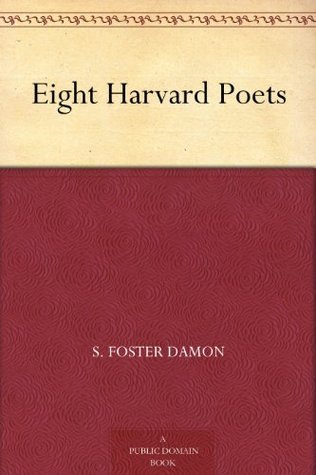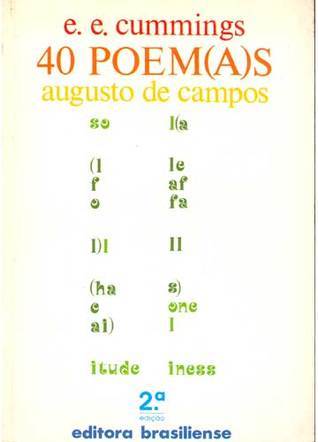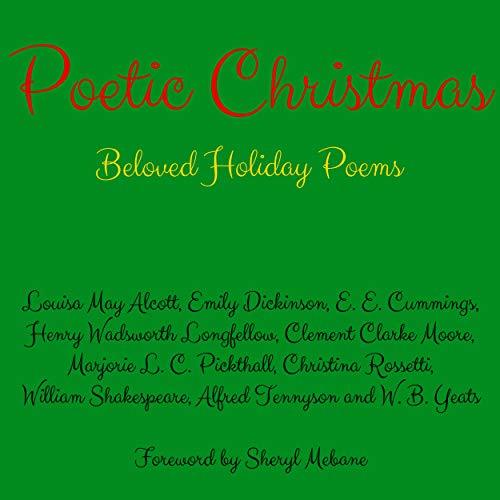
Edward Estlin Cummings was born in Cambridge, Massachusetts, on October 14, 1894. He began writing poems as early as 1904 and studied Latin and Greek at the Cambridge Latin High School. He received his BA in 1915 and his MA in 1916, both from Harvard University. His studies there introduced him to the poetry of avant-garde writers, such as Gertrude Stein and Ezra Pound. In 1917, Cummings published an early selection of poems in the anthology Eight Harvard Poets. The same year, Cummings left the United States for France as a volunteer ambulance driver in World War I. Five months after his assignment, however, he and a friend were interned in a prison camp by the French authorities on suspicion of espionage (an experience recounted in his novel, The Enormous Room) for his outspoken anti-war convictions. After the war, he settled into a life divided between houses in rural Connecticut and Greenwich Village, with frequent visits to Paris. He also traveled throughout Europe, meeting poets and artists, including Pablo Picasso, whose work he particularly admired. In 1920, The Dial published seven poems by Cummings, including "Buffalo Bill ’s.” Serving as Cummings’ debut to a wider American audience, these “experiments” foreshadowed the synthetic cubist strategy Cummings would explore in the next few years. In his work, Cummings experimented radically with form, punctuation, spelling, and syntax, abandoning traditional techniques and structures to create a new, highly idiosyncratic means of poetic expression. Later in his career, he was often criticized for settling into his signature style and not pressing his work toward further evolution. Nevertheless, he attained great popularity, especially among young readers, for the simplicity of his language, his playful mode and his attention to subjects such as war and sex. The poet and critic Randall Jarrell once noted that Cummings is “one of the most individual poets who ever lived—and, though it sometimes seems so, it is not just his vices and exaggerations, the defects of his qualities, that make a writer popular. But, primarily, Mr. Cummings’s poems are loved because they are full of sentimentally, of sex, of more or less improper jokes, of elementary lyric insistence.” During his lifetime, Cummings received a number of honors, including an Academy of American Poets Fellowship, two Guggenheim Fellowships, the Charles Eliot Norton Professorship at Harvard, the Bollingen Prize in Poetry in 1958, and a Ford Foundation grant. At the time of his death, September 3, 1962, he was the second most widely read poet in the United States, after Robert Frost. He is buried in Forest Hills Cemetery in Boston, Massachusetts. source: http://www.poets.org/poetsorg/poet/e-...
Series
Books

Good Poems for Hard Times
2005

May I Feel Said He
1995

Eight Harvard Poets
2011

ViVa
1931
i like my body when it is with your
2026

In Just-Spring
1990

The Enormous Room
1922

50 Poems
1940

A Poetry Collection
2001

Collected Poems
1938

A Selection of Poems
1965

Puella Mea
1923

Etcetera
The Unpublished Poems of E.E. Cummings
1983

E. E. Cummings
1965

Like a perhaps hand
Poems. Gedichte (textura)
2000

40 poemas
1986

E. E. Cummings
Complete Poems, 1913-1962
1972

100 Selected Poems
1923

Poems, 1923-1954
1954

e. e. cummings
Selected Works
2019

Tulips & Chimneys
1923
![& [AND] book cover](https://images-na.ssl-images-amazon.com/images/S/compressed.photo.goodreads.com/books/1372488309i/16078552.jpg)
& [AND]
1925
next to of course god america
2025

Him
1927

E.E. Cummings
A Poetry Collection
2001

95 Poems
1958

XAIPE
1950

Poesie
1963

One Times One
1944

Selected Poems
1960

Hist Whist and Other Poems for Children
1983

Buffalo Bill ha muerto
1920

Erotic Poems
2010

No Thanks
1935

Love
Selected Poems
2003
Poems for Notre Dame
2020

The Theatre of E. E. Cummings
2013

Érotiques (Poésie d'abord)
2015

сърцето ти нося
2015

EIMI
2007

Little Things
An Anthology of Poetry
2013

The Early Works of E.E. Cummings
2011

Fairy Tales
1965

The Voice of the Poet
e.e. cummings
2005

Santa Claus
A Morality
1946

Hist Whist
1976

22 and 50 Poems
2001

Selected Poems, 1923-1958
1960

xix poemas
1991

I Carry Your Heart with Me
2014

Poetic Christmas
Beloved Holiday Poems
2018

E.E. Cummings
Complete Poems 1904-1962
1991

AnOther E.E. Cummings
1996

XLI Poems - Poetry by e.e. cummings
1925

Little Tree
1987

Is 5
1970

i
Six Nonlectures
1953

73 Poems
1963




